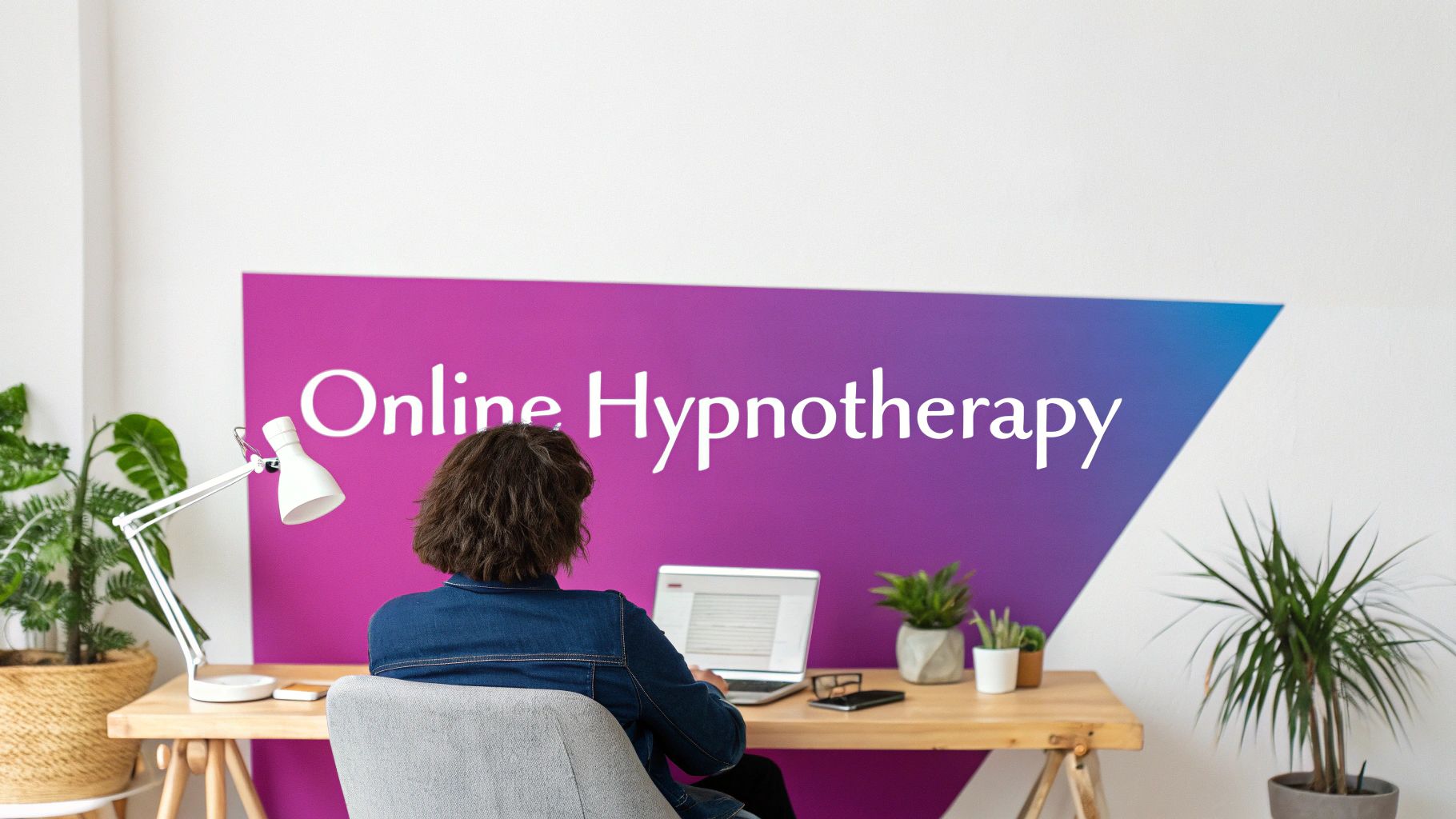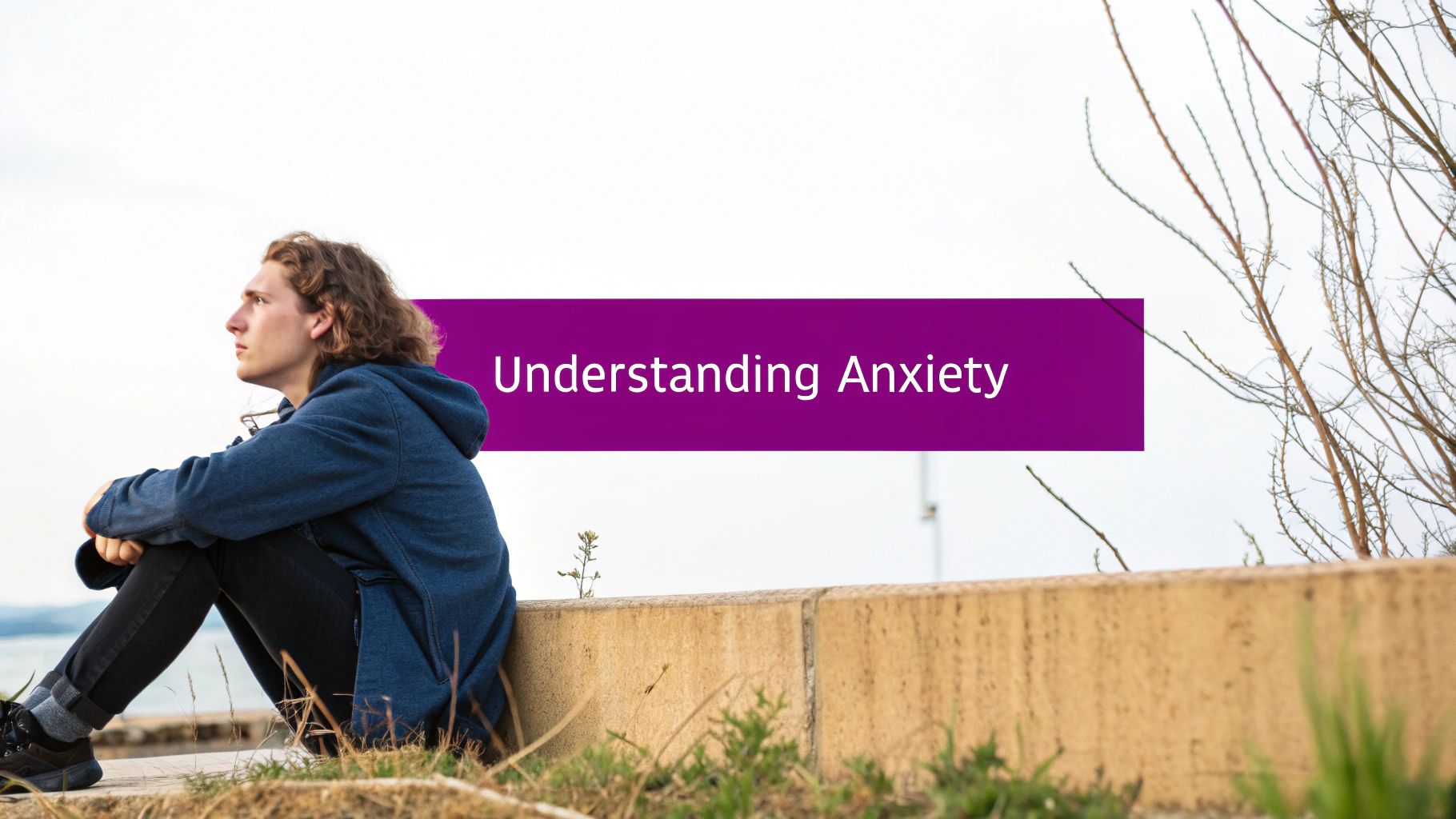

For many, the thought of therapy brings to mind images of softly lit rooms and intimate conversations. However, online hypnotherapy offers a practical and effective alternative for anxiety relief, all from the comfort of your home. This approach uses the same therapeutic principles as traditional hypnotherapy, simply delivered through a virtual setting. This allows you to experience the benefits of hypnosis without the inconvenience of travel or the constraints of in-person appointments.
A frequent concern about online therapy revolves around the potential for a less personal connection. However, skilled online hypnotherapists excel at fostering rapport through video conferencing platforms like Zoom. They utilize techniques like active listening, empathetic communication, and tailored approaches to cultivate a safe and trusting therapeutic relationship.
For instance, sessions might begin with grounding exercises to help you feel centered and connected, even through a screen. This creates a strong foundation for effective hypnotic work. Establishing this connection is key to a successful online therapy experience.
A typical online hypnotherapy session for anxiety starts with an initial consultation. This is an opportunity to discuss your individual needs and goals for therapy. The hypnotherapist then guides you into a relaxed state using various induction techniques. These might include visualization or progressive relaxation exercises.
Once you're in this receptive state, they employ hypnotic suggestions specifically designed to address your anxiety triggers and desired outcomes. Online hypnotherapy also frequently integrates self-hypnosis techniques. This empowers you to manage your anxiety independently between sessions, building long-term coping skills.
Like traditional hypnotherapy, online hypnotherapy is sometimes subject to misconceptions. It's important to understand that it's not about mind control or coercion. Rather, it's a collaborative process that harnesses the power of suggestion to reshape negative thinking patterns and encourage positive change.
This is especially relevant for anxiety, where negative thoughts can fuel a cycle of worry and fear. For a deeper understanding, you might be interested in reading more about hypnotherapy: What is Hypnotherapy?
Online hypnotherapy has gained significant traction, particularly in recent years. This allows individuals worldwide to access therapeutic support, regardless of location. This increased accessibility has been a major factor in its growing popularity. The effectiveness of online hypnotherapy, particularly for anxiety and stress, is supported by research showing comparable results to face-to-face therapy. You can explore this further: The effectiveness of online hypnotherapy.

Online hypnotherapy for anxiety offers more than just a sense of deep relaxation. It can actually prompt fascinating changes within the brain, essentially rewiring your anxiety response at a neural level. This isn't just anecdotal evidence; neuroscientific research is revealing the tangible impact of hypnosis on how we process anxiety.
One key area affected by hypnosis is the amygdala, the brain's emotional processing center. In individuals experiencing anxiety, the amygdala is often overactive, misinterpreting non-threatening situations as dangerous. Hypnosis helps to calm this overactivity, much like turning down the volume on an overly sensitive alarm system. This, in turn, allows for a more balanced and appropriate emotional response.
The overactive amygdala can lead to a heightened state of alert, causing unnecessary stress and worry. By calming the amygdala, hypnosis helps to break this cycle, promoting a greater sense of calm and control.